- Clone
- HM40-3 (See other available formats)
- Regulatory Status
- RUO
- Other Names
- Bp50, TNFRSF5
- Isotype
- Armenian Hamster IgM
- Ave. Rating
- Submit a Review
- Product Citations
- publications
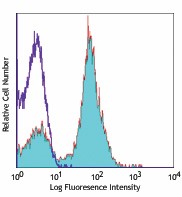
-

C57BL/6 mouse splenocytes stained with HM40-3 Alexa Fluor® 647
| Cat # | Size | Price | Quantity Check Availability | Save | ||
|---|---|---|---|---|---|---|
| 102911 | 25 µg | £70 | ||||
| 102912 | 100 µg | £157 | ||||
CD40 is a 48 kD type I transmembrane glycoprotein, also known as Bp50. It is a member of the tumor necrosis factor receptor (TNFR) superfamily, expressed on B cells, basal epithelial cells, macrophages, follicular dendritic cells, endothelial cells, and a subset of CD34+ hematopoietic progenitors. CD40 regulates B cell development/maturation, Ig isotype switching and, in combination with other signals such as IL-4, protects B cells from surface Ig-induced apoptosis and promotes proliferation. Interaction of CD40 with its ligand CD154 (gp39) expressed on activated T cells, is important in costimulation and immune regulation. The HM40-3 antibody has been reported to stimulate dendritic and B cell proliferation and block CD40-CD40L interactions.
Product DetailsProduct Details
- Verified Reactivity
- Mouse
- Antibody Type
- Monoclonal
- Host Species
- Armenian Hamster
- Immunogen
- (BALB/c x NZB)F1 mouse-derived lymphoma WEHI 231
- Formulation
- Phosphate-buffered solution, pH 7.2, containing 0.09% sodium azide.
- Preparation
- The antibody was purified by affinity chromatography and conjugated with Alexa Fluor® 647 under optimal conditions.
- Concentration
- 0.5 mg/ml
- Storage & Handling
- The antibody solution should be stored undiluted between 2°C and 8°C, and protected from prolonged exposure to light. Do not freeze.
- Application
-
FC - Quality tested
- Recommended Usage
-
Each lot of this antibody is quality control tested by immunofluorescent staining with flow cytometric analysis. For flow cytometric staining, the suggested use of this reagent is ≤ 1.0 µg per million cells in 100 µl volume. It is recommended that the reagent be titrated for optimal performance for each application.
* Alexa Fluor® 647 has a maximum emission of 668 nm when it is excited at 633 nm / 635 nm.
Alexa Fluor® and Pacific Blue™ are trademarks of Life Technologies Corporation.
View full statement regarding label licenses - Excitation Laser
-
Red Laser (633 nm)
- Application Notes
-
Additional reported applications (for the relevant formats) include: blocking of CD40 ligand binding1, stimulation of mouse B cell and dendritic cell proliferation2-6,9, and immunohistochemistry7 of acetone-fixed frozen sections. The LEAF™ purified antibody (Endotoxin <0.1 EU/µg, Azide-Free, 0.2 µm filtered) is recommended for functional assays (Cat. No. 102908).
-
Application References
(PubMed link indicates BioLegend citation) -
- Kawano T, et al. 1997. Science 278:1626. (Block)
- Kaneko Y, et al. 1996. Eur. J. Immunol. 26:3061. (Costim)
- Kashiwada M, et al. 1996. Eur. J. Immunol. 26:1451. (Costim)
- Inaba M, et al. 1995. Eur. J. Immunol. 25:1244. (Costim)
- Akiba H, et al. 1999. J. Immunol. 162:7058. (Costim)
- Ridge JP, et al. 1998. Nature 393:474. (Costim)
- Morelli AE, et al. 2000. Transplantation 69:2647. (IHC)
- Ma XT, et al. 2006. Cancer Research 66:1169.
- Yu X, et al. 2006. J. Biol. Chem. 281:15505. (Costim)
- del Rio ML, et al. 2011. Transpl. Int. 24:501. (FC) PubMed
- Product Citations
-
- RRID
-
AB_492854 (BioLegend Cat. No. 102911)
AB_492854 (BioLegend Cat. No. 102912)
Antigen Details
- Structure
- TNFR superfamily, 48 kD
- Distribution
-
B cells, basal epithelial cells, macrophages, follicular dendritic cells, endothelial cells, CD34+ hematopoietic progenitors
- Function
- Stimulates B cell growth, differentiation and isotype switching, stimulates macrophage and dendritic cell cytokine production
- Ligand/Receptor
- CD40L (CD154)
- Cell Type
- B cells, Dendritic cells, Endothelial cells, Epithelial cells, Hematopoietic stem and progenitors, Macrophages
- Biology Area
- Cell Biology, Costimulatory Molecules, Immunology, Neuroscience, Neuroscience Cell Markers
- Molecular Family
- CD Molecules
- Antigen References
-
1. Barclay A, et al. 1997. The Leukocyte Antigen FactsBook Academic Press.
2. Bancherou J, et al. 1994. Annu. Rev. Immunol. 12:881.
3. Clark EA, et al. 1996. P. Natl. Acad. Sci. USA 83:4494. - Gene ID
- 21939 View all products for this Gene ID
- UniProt
- View information about CD40 on UniProt.org
Other Formats
View All CD40 Reagents Request Custom Conjugation| Description | Clone | Applications |
|---|---|---|
| FITC anti-mouse CD40 | HM40-3 | FC |
| Purified anti-mouse CD40 | HM40-3 | FC,Block,Costim,IHC-F |
| Alexa Fluor® 488 anti-mouse CD40 | HM40-3 | FC |
| Alexa Fluor® 647 anti-mouse CD40 | HM40-3 | FC |
| Ultra-LEAF™ Purified anti-mouse CD40 | HM40-3 | FC,Block,Costim,IHC-F |
Customers Also Purchased
Compare Data Across All Formats
This data display is provided for general comparisons between formats.
Your actual data may vary due to variations in samples, target cells, instruments and their settings, staining conditions, and other factors.
If you need assistance with selecting the best format contact our expert technical support team.
-
FITC anti-mouse CD40
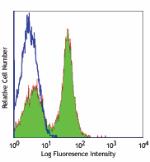
C57BL/6 mouse splenocytes stained with HM40-3 FITC -
Purified anti-mouse CD40

C57BL/6 mouse splenocytes stained with CD3ε APC and ... -
Alexa Fluor® 488 anti-mouse CD40
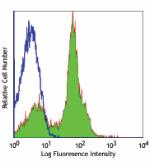
C57BL/6 mouse splenocytes stained with HM40-3 Alexa Fluor® 4... -
Alexa Fluor® 647 anti-mouse CD40
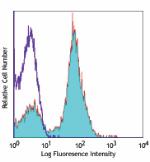
C57BL/6 mouse splenocytes stained with HM40-3 Alexa Fluor® 6... -
Ultra-LEAF™ Purified anti-mouse CD40

C57BL/6 mouse splenocytes stained with CD3ε APC and CD40 (cl...

 Login / Register
Login / Register 










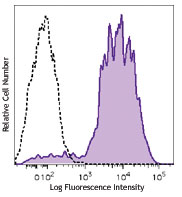
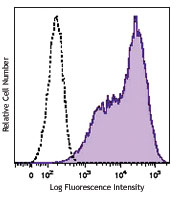
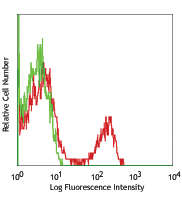
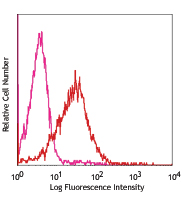



Follow Us